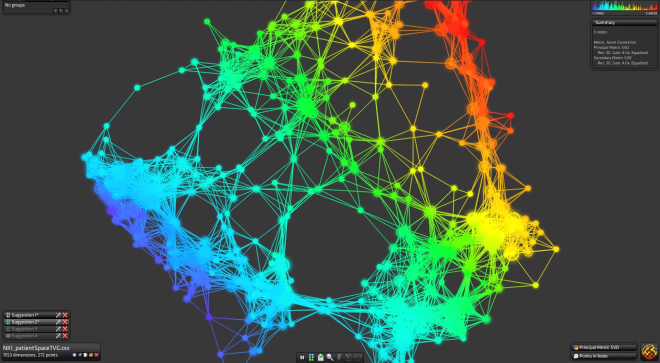For parents: a few brief tips on how to deal with young adult children — that most pampered of generations. Tip number 1: turn off junior’s access to the family Netflix account.
From WSJ:
Congratulations. Two months ago, your kid graduated from college, bravely finishing his degree rather than dropping out to make millions on his idea for a dating app for people who throw up during Cross Fit training. If he’s like a great many of his peers, he’s moved back home, where he’s figuring out how to become an adult in the same room that still has his orthodontic headgear strapped to an Iron Man helmet.
Now we’re deep into summer, and the logistical challenges of your grad really being home are sinking in. You’re constantly juggling cars, cleaning more dishes and dealing with your daughter’s boyfriend, who not only slept over but also drank your last can of Pure Protein Frosty Chocolate shake.
But the real challenge here is a problem of your own making. You see, these children are members of the Most-Loved Generation: They’ve grown up with their lives stage-managed by us, their college-acceptance-obsessed parents. Remember when Eva, at age 7, was obsessed with gymnastics…for exactly 10 months, which is why the TV in your guest room sits on top of a $2,500 pommel horse?
Now that they’re out of college, you realize what wasn’t included in that $240,000 education: classes in life skills and decision-making.
With your kid at home, you find that he’s incapable of making a single choice on his own. Like when you’re working and he interrupts to ask how many blades is the best number for a multi-blade razor. Or when you’ve just crawled into bed and hear the familiar refrain of, “Mom, what can we eat?” All those years being your kid’s concierge and coach have created a monster.
So the time has come for you to cut the cord. And by that I mean: Take your kid off your Netflix account. He will be confused and upset at first, not understanding why this is happening to him, but it’s a great opportunity for him to sign up for something all by himself.
Which brings us to money. It’s finally time to channel your Angela Merkel and get tough with your young Alexis Tsipras. Put him on a consistent allowance and make him pay the extra fees incurred when he uses the ATM at the weird little deli rather than the one at his bank, a half-block away.
Next, nudge your kid to read books about self-motivation. Begin with baby steps: Don’t just hand her “Lean In” and “I Am Malala.” Your daughter’s great, but she’s no Malala. And the only thing she’s leaning in to is a bag of kettle corn while binge-watching “Orange Is the New Black.”
Instead, over dinner, casually drop a few pearls of wisdom from “Coach Wooden’s Pyramid of Success,” such as, “Make each day your masterpiece.” Let your kid decide whether getting a high score on her “Panda Pop Bubble Shooter” iPhone game qualifies. Then hope that John Wooden has piqued her curiosity and leave his book out with a packet of Sour Patch Xploderz on top. With luck, she’ll take the bait (candy and book).
Now it’s time to work on your kid’s inability to make a decision, which, let’s be honest, you’ve instilled over the years by jumping to answer all of her texts, even that time you were at the opera. “But,” you object, “it could have been an emergency!” It wasn’t. She couldn’t remember whether she liked Dijon mustard or mayo on her turkey wrap.
Set up some outings that nurture independence. Send your kid to the grocery store with orders to buy a week of dinner supplies. She’ll ask a hundred questions about what to get, but just respond with, “Whatever looks good to you” or, “Have fun with it.” She will look at you with panic, but don’t lose your resolve. Send her out and turn your phone off to avoid a barrage of texts, such as, “They’re out of bacterial wipes to clean off the shopping cart handle. What should I do?”
Rest assured, in a couple of hours, she’ll return with “dinner”—frozen waffles and a bag of Skinny Pop popcorn. Tough it out and serve it for dinner: The name of the game is positive reinforcement.
Once she’s back you’ll inevitably get hit with more questions, like, “It’s not lost, but how expensive is that remote key for the car?” Take a deep breath and just say, “Um, I’m not sure. Why don’t you Google it?”
Read the entire story here.


 Procrastinators have known this for a long time: that success comes from making a decision at the last possible moment.
Procrastinators have known this for a long time: that success comes from making a decision at the last possible moment. Over the last couple of years a number of researchers have upended conventional wisdom by finding that complex decisions, for instance, those having lots of variables, are better “made” through our emotional system. This flies in the face of the commonly held belief that complexity is best handled by our rational side.
Over the last couple of years a number of researchers have upended conventional wisdom by finding that complex decisions, for instance, those having lots of variables, are better “made” through our emotional system. This flies in the face of the commonly held belief that complexity is best handled by our rational side.